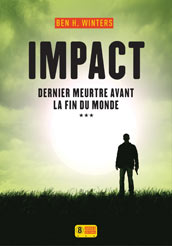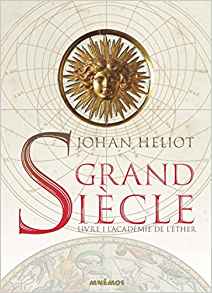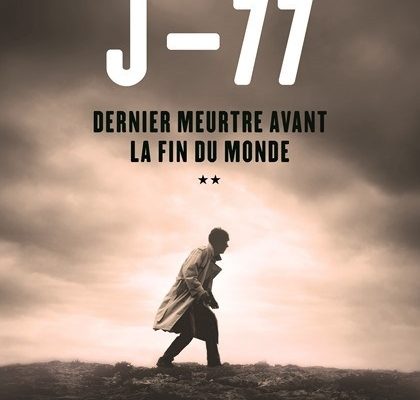 Réalisée par :Mail
Réalisée par :Mail
Date :Mars 2006
Allan : Before talking about your books and projects, It usual for us to ask a short presentation of the writer and his course: do you accept to do it ?
Robert : I started writing science fiction and ghost stories before my teenage years, very much inspired by my grandfather (a good storyteller). I trained for Medical Research, in the field of parasites and immunology, but found it too laborious. I had imagination but no patience for experiments. I started writing as a profession in 1975; my breakthrough novel was Mythago Wood in 1984, which coincided with the ending of my first marriage and the beginning of my second. I’ve always wanted to ’cross the genres’, and most of my writing attempts to do that. The origins of myth amd the nature of consciousness, and its first formation, fascinate me. Both of those areas of thought allow for the crossing of genres. I began by being fascinated by the far future. Now I’m fascinated by the far past as well. Curiosity is a measure of our life force as a species; frustration at knowing we will not have answers in our lifetime is a measure of our permanence as a species. We must resist the complacency of ’blind faith’ at all costs.
I’ve lived in London for 21 years, though my heart and imagination resides firmly in the countryside. Most of my writing is set in the landscapes of my boyhood: the marshes of Kent, the forests of Kent and the South East. Latterly, I use more exotic locations. The imagination, and National Geographic Magazine, are a wonderful guide to ’other worlds’.
Allan : England is known for his authors of fantasy universally recongnised : which authors marked you ?
Robert : When I was young, I read H.G.Wells and Jules Verne. Especially H.G.Wells – The Time Machine, First Men in the Moon, and the war of the Worlds. I was greatly influenced by the series of Television plays: Quatermass. I also read so much science fiction that I can hardly believe I had the time to do so. Mostly American science fiction. But when I discovered William Golding, Keith Roberts, Brian Aldiss and Michael Moorcock, I found pleasure and influence of a more visual form. I am a visual writer. Film influences me; visual writing influences me. I have said before: when I write a book, Sergeo Leone is directing it! (And sometimes Clint Eastwood or Ridley Scott)
Allan : When we have a look to your books, we feel that the old Britain culture and his myths are everywhere : why this interest for this time ?
Robert : I am often told that I am writing ’British myth’. That’s wrong. I’m writing European myth. In fact, I’m writing about the origins of mythology. Everything that is ’mythic’ in Britain has an older, wider origin. (See the forthcoming Denoel edition of Ancient Echoes.) Yes, to be sure, I know the British version best; but my interest has always resided in understanding the very, very ancient roots of any piece of mythology or folklore. When early humans came out of Africa they brought storytelling, memory, experience, fear and fascination with them. Everything has a beginning, and I am deeply interested in the nature of those beginning moments.
Allan : What is your personnal story with Celts that incite you to write about them?
Robert : This is hard to answer. I became aware of the heroic’ element of the Iron Age when I was married to an Irish woman, who showed me all the ancient sites of the Irish kingdoms. I also discovered the magnificence of the even earlier ages. I read the Welsh tales (The Mabinogion), the Irish Celtic epic (The Cattle Raid or The Tain, the tales of Cu Culainn) and discovered the extent to which the ’Celtic’ culture had been widespread across Europe before the devastating influence of invasion in 55BC and onwards. I think I was fascinated by the idea of the belief systems – the gods and rituals – of the ’Celts’; I was a romantic, much as the painters and poets of the nineteenth century were romantic about the lost civilisation (even though it was never really lost)
Allan : Mythagos allow in France to discover you… action take place in a forest and the myths which get out it… Is This work complete and what represent Mythagos’ Forest for you ?
Robert : No, the MYTHAGO work will never be omplete. I will die (not yet) with an idea in my head. Every writer needs a way to explore his or her passions; an invented world that is vast and ever ready for further exploration is a wonderful way to do it. There is nothing new in the idea of an enchanted wood. But Ryhope Wood, and the
creations that are born within it – a combination of the human unconscious and the memory of the land – are mine, and mine alone. Mythago Wood is a canvass of infinity, most of which exists only as faint sketches for further painting.
Allan : After the Celts legends, you approach the myth of Merlin, showing a different aspect of the famous magician : Is it important for you to renew this story ?
Robert : Merlin is like the Heisenberg Uncertainty Principle. The nature of his existence only becomes clear when you open the box and take a look at him. Each time you open the box you find a different Merlin. Merlin exists in an infinity of ’states’. He is exactly what you see in your mind’s eye, your imagination; he speaks different words, tells of a different life, according to ther observer who is recording him. He is ubiquitous and incomprehensible. We are all Merlin. Merlin is all of us.
Allan : So, between Celts myths and Arthur’s legends, we can think that you dedicate a true worship for our story : which your relation with France and which view have you of France ?
Robert : I’ve always loved France. I love its history, especially its early history. Ok. ok, I love its paleolithic history the most (The Perigord !). I can’t get enough of the country. What else can I say ? Our traditions are very close, especially those of Brittany.
Allan : Moreover, within sight of your knowledge, I suppose that you frequently came in France : where have we a luck to see you ?
Robert : Well, yes. I have friends all over France. My wife and myself have a regular ’base camp’ in Provence, and in Beaugency, in Rouen, and in Burgundy. (I wish I could afford Meursault wines ; alas, alas.) I propose to come to Paris as soon as I can. After the publication of Merlin’s Wood (Mnemos) I promised my excellent agent, Ann Lenclud, a ’full English breakfast’ as thanks for making the deal. I still have to honour that debt !!!
Allan : About Necromancer, your last french published book, I first want to ask you what is your feelings about the time taken to translate it ?
Robert : It took me a long time to become translated in France. Mythago Wood was translated a long time ago (thank you Patrice Duvic), but all attempts to have my work translated before that were to no avail, despite good efforts from my translator and writer friend Marianne. What I think happens is that times change, tastes change, and sometimes older stories, not popular at the time of publication, become interesting later. I worked long and hard on Necromancer in 1978. It was an attempt to combine ’the occult’ with ’science’, something that had interested me for some time. It also indukged my opassion for ’the
fogotten, ancient past’. All I can say is : I’m truly pleased it will now get to be seen in France, and that it was a real and wonderful experience working with my translator Sandra Kazourian.
Allan : The Stone imply in this story, came from Celts and is against a church… A kind of revenche for the Celts’ religion ?
Robert : If you look in the Denoel edition of my stories, Dans les Vallees des Statues, you will find ’Thorn’. This explores the theme of ’the persistence of pre-Christian belief’ in a very thorough manner. The point about Necromancer is that it suggests that there is power in the supernatural from all ages, all times, all cultures. The stone, as you say, has an older power associated with it. In exactly the way that Christianity would ’christianise’ old standing stones, or sanctuaries, so this stone of sacrifice has been made into a
Catholic baptismal font. But baptism is merely a form of sacrifice. The function of the stone
doesn’t change, only the way it is used. I suppose I was exploring the way one religion can fear another, can become impotent because of that fear. I remember that I tried to relate the experience of Francoise Jeury, the French psychic, with the experience of the stone font. Both stone and woman are an affront to the normal. Necromancer is an apt title; it suggests that we do not need to raise the dead; the dead are always among us in the persistence of power, and ritual, and memory.
Allan : I find the scientist awful in his way to consider the other people ; scientist must have problem with his contemporaries for you ?
Robert : No. Not at all. I am a scientist myself. Science, and the search for knowledge, is the greatest and most enduring aspect of the human mind. I am angry with religion, at this stage of my life, all religion ; for its abandonment of common sense and the way it interferes with the exploration of the unknown, the search for knowledge and truth. All human beings are potentially cats : curious. Curiosity doesn’t kill us, mindless belief kills us. But I characterised my scientist for dramatic purposes, not because I was making a statement about knowledge and truth. Kline – the scientist – is one of my great heros. Francoise, the psychic, one of my favourite heroines. I believe in science, not the supernatural ; but I believe that belief in the supernatural is part of the natural evolution of the human mind, and should be studied accordingly.
Allan : What do you write actually ?
Robert : The third book in the Merlin Codex : The Broken Kings. A very hard book to write. A very different novel to Celtika, but one that I hope will explain a great deal. It is set, substantially, in ancient Crete.
Allan : Have you another project ?
Robert : I always have other projects. Another Mythago book, certainly, and something that will be very close to the heart of all fans of French legend.
Allan : Do you visit our website and if yes, what do you think about ?
Robert : Great website.
Allan : What can we wish You ?
Robert : Continued imagination. And please don’t change the French way of life!
Allan : The last word you want to say will be :
Robert : The past is not a different country. We all did things the same there. Each and every one of us is a repository of forgotten knowledge and experience.



1 commentaire sur “Interview : Robert Holdstock”